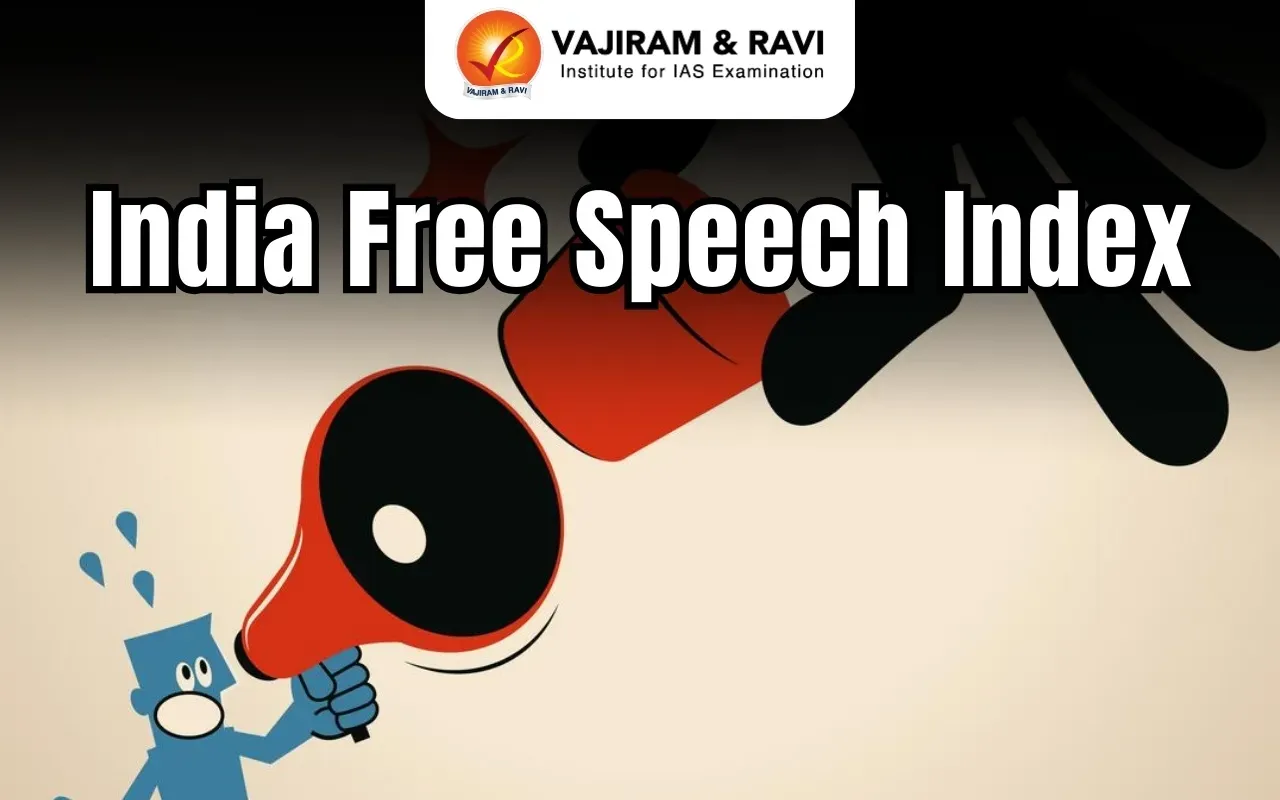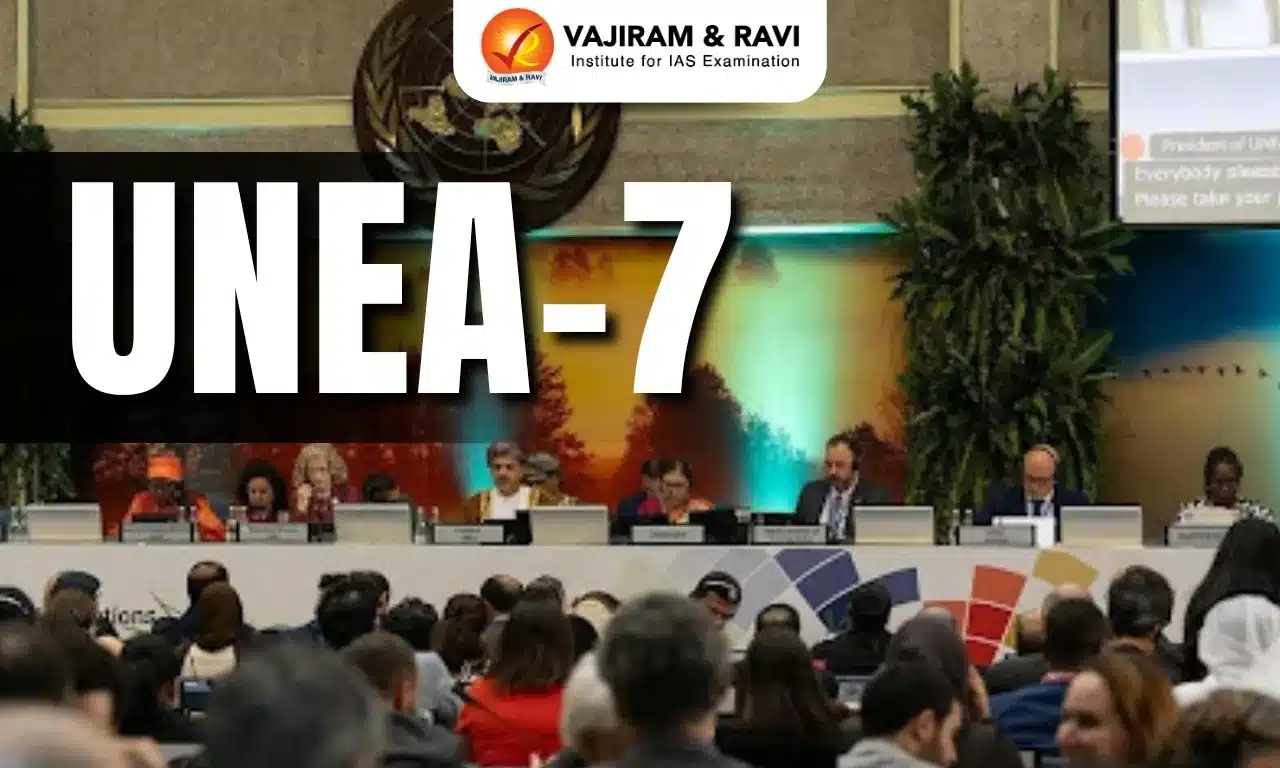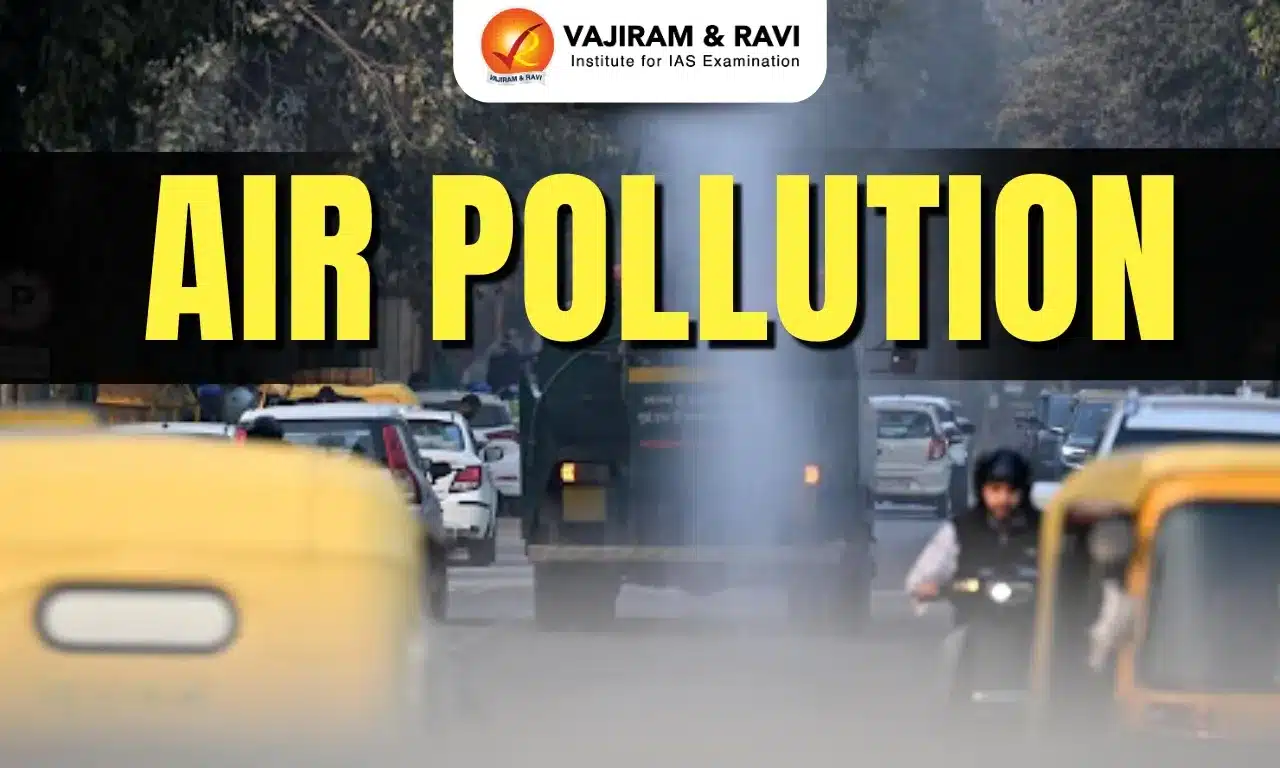What’s in Today’s Article?
- Global Free Speech Index Latest News
- India’s Ranking in Free Speech Index
- Global Trends in Free Speech
- Key Findings About Free Speech in India
- Challenges to Free Speech in India
- Way Forward
- Conclusion
- Free Speech in India FAQs
Global Free Speech Index Latest News
- A new global survey by The Future of Free Speech, an independent U.S.-based think tank, has ranked India 24th out of the 33 countries surveyed on the question of support for free speech.
India’s Ranking in Free Speech Index
- A recent global survey by The Future of Free Speech, a U.S.-based think tank, has ranked India 24th out of 33 surveyed countries in terms of support for free speech.
- The report, titled “Who in the World Supports Free Speech?”, reveals a concerning decline in the global commitment to protecting controversial speech, with India being an exception where public perception and actual free speech conditions do not align.
Global Trends in Free Speech
- The survey, conducted in October 2024, found that:
- Scandinavian countries dominate the index, with Norway (87.9) and Denmark (87.0) securing the top positions.
- Indonesia (56.8), Malaysia (55.4), and Pakistan (57.0) showed the biggest improvements despite being lower in the rankings.
- Hungary (85.5) and Venezuela (81.8), despite being authoritarian-leaning, ranked high due to public perception of free speech.
- India, with a score of 62.6, was placed between South Africa (66.9) and Lebanon (61.8).
Key Findings About Free Speech in India
- Public Support for Free Expression vs. Reality
- The majority of Indians believe in free speech without government censorship.
- However, support for criticizing government policies is lower than the global average.
- Strong Support for Government Restrictions on Criticism
- 37% of Indian respondents agreed that the government should prevent people from criticizing its policies—the highest among all surveyed countries.
- Comparatively, this sentiment was supported by: 5% in the U.K/ & 3% in Denmark.
- This suggests that a significant section of Indians favours restrictions on political speech, reflecting growing support for government control over public discourse.
- Discrepancy Between Public Perception and International Assessment
- Indians and South Africans felt their ability to speak freely had improved.
- However, global rankings indicate a decline in free speech protection in India, highlighting a disconnect between perception and actual conditions.
- India’s Position in Democratic Backsliding
- The report identifies India as a country experiencing “democratic backsliding”, similar to Hungary and Venezuela.
- While free speech laws exist in principle, their enforcement is weak, and restrictions on dissent are increasing.
Challenges to Free Speech in India
- Legal and Political Restrictions
- India’s sedition law (Section 124A of the IPC) has been used to suppress political dissent.
- Unlawful Activities (Prevention) Act (UAPA) has been criticized for targeting journalists, activists, and opposition voices.
- The IT Rules 2021 give the government broad powers to regulate social media and digital content, leading to censorship concerns.
- Rise in Self-Censorship
- Fear of legal repercussions and online harassment discourages open expression.
- Media houses and journalists often face political and economic pressures, leading to biased reporting or avoidance of critical issues.
- Selective Tolerance for Free Speech
- While free speech is widely supported in principle, it is often opposed when it contradicts political beliefs or religious sentiments.
- The arrests of activists, journalists, and stand-up comedians highlight inconsistent application of free speech rights.
Way Forward
- Reaffirming Legal Protections
- Repealing or amending outdated laws like sedition laws and UAPA provisions that suppress dissent.
- Strengthening judicial oversight to prevent misuse of laws against activists and journalists.
- Promoting a Culture of Open Debate
- Educational institutions and media should encourage free discussion on diverse perspectives.
- Political parties should commit to respecting free speech rights across ideological lines.
- Enhancing Digital and Media Freedom
- Strengthening laws that protect journalists from government pressure and corporate influence.
- Ensuring that social media regulations do not lead to arbitrary censorship.
- Aligning Public Perception with Reality
- Raising awareness about constitutional free speech protections.
- Encouraging fact-based discussions on government policies and political discourse.
Conclusion
- India’s 24th rank in the Free Speech Index highlights a growing concern about the erosion of free expression.
- While Indians believe their right to speech has improved, international assessments indicate declining press freedom, increased censorship, and growing restrictions on dissent.
- For a healthy democracy, India must strengthen legal safeguards, promote open dialogue, and ensure that free speech is protected in practice, not just in principle.
Free Speech in India FAQs
Q1. Where does India rank in the Global Free Speech Index?
Ans. India ranks 24th out of 33 countries in the latest Free Speech Index.
Q2. Why is India’s free speech ranking concerning?
Ans. India’s ranking reflects increased government restrictions and declining protection for dissenting voices.
Q3. How does India compare to other countries in supporting criticism of the government?
Ans. 37% of Indians support government restrictions on criticism, the highest among all surveyed nations.
Q4. What legal challenges threaten free speech in India?
Ans. Laws like the sedition law, UAPA, and IT Rules 2021 have been used to curtail free expression.
Q5. What reforms are needed to improve free speech in India?
Ans. Reforms should include legal safeguards, stronger media protections, and promoting open political debates.
Source: TH
Last updated on December, 2025
→ Check out the latest UPSC Syllabus 2026 here.
→ Join Vajiram & Ravi’s Interview Guidance Programme for expert help to crack your final UPSC stage.
→ UPSC Mains Result 2025 is now out.
→ UPSC Notification 2026 is scheduled to be released on January 14, 2026.
→ UPSC Calendar 2026 is released on 15th May, 2025.
→ The UPSC Vacancy 2025 were released 1129, out of which 979 were for UPSC CSE and remaining 150 are for UPSC IFoS.
→ UPSC Prelims 2026 will be conducted on 24th May, 2026 & UPSC Mains 2026 will be conducted on 21st August 2026.
→ The UPSC Selection Process is of 3 stages-Prelims, Mains and Interview.
→ UPSC Result 2024 is released with latest UPSC Marksheet 2024. Check Now!
→ UPSC Prelims Result 2025 is out now for the CSE held on 25 May 2025.
→ UPSC Toppers List 2024 is released now. Shakti Dubey is UPSC AIR 1 2024 Topper.
→ UPSC Prelims Question Paper 2025 and Unofficial Prelims Answer Key 2025 are available now.
→ UPSC Mains Question Paper 2025 is out for Essay, GS 1, 2, 3 & GS 4.
→ UPSC Mains Indian Language Question Paper 2025 is now out.
→ UPSC Mains Optional Question Paper 2025 is now out.
→ Also check Best IAS Coaching in Delhi

















